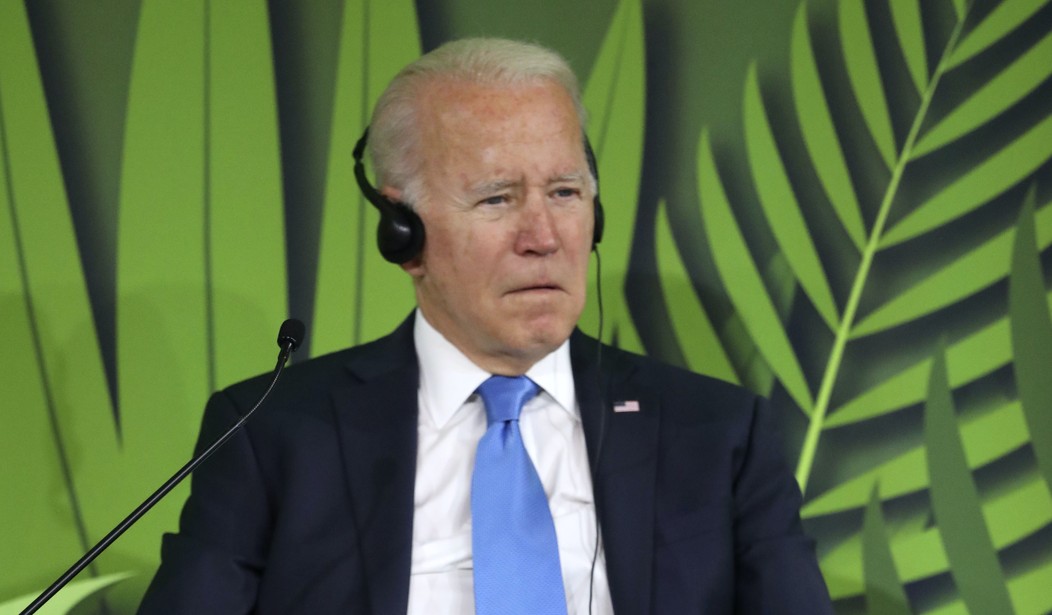When Americans think about climate action, they probably think about the Democratic Party. From the Green New Deal to key Build Back Better provisions, Democrats have put the environment at the forefront of their agenda.
The challenge is, when you separate their record from their rhetoric, Democrats aren’t actually accomplishing anything on climate.
According to new polling from my organization, the American Conservation Coalition, young Americans between the ages of 18 and 30 trust Democrats two times more than Republicans on climate change. Of course, there’s still a reason for this: even with a lack of substantive legislative results on climate, Democrats appear trustworthy by nature of them always talking about the issue and what they would accomplish if Republicans – or even the moderates in their own party – would simply fall in line. In other words, Democrats have already established climate credibility, and they use it.
Democrats created the Build Back Better package, for instance, knowing that there would be nonstarters for Republicans and would therefore garner zero support from that side of the aisle. The bill was essentially every progressive priority – from climate to child care to health care – Democrats couldn’t get in the bipartisan, well-negotiated infrastructure legislation that was ultimately signed by the president. It should be said that this bill never would have been negotiated without Republican Senators Bill Cassidy, Rob Portman, and more.
What Democrats didn’t count on, however, was that members of their own party would object to some BBB content and block the bill’s passage entirely. But, there will never be a moment Democratic leaders admit fault for jamming every priority under the sun in one bill; those who recognized and spoke out about the bill’s significant flaws will instead be blamed for not caring about the issues that plague every day Americans.
Recommended
Meanwhile, Republicans still struggle with messaging on climate. While some elected Republicans have emerged as leaders on environmental issues, from Conservative Climate Caucus Chairman John Curtis to former Senate Energy and Natural Resources Chairman Lisa Murkowski, Republicans as a whole have not yet established climate credibility compared to Democrats. Yet, the right has made monumental strides on environmentalism in the past few years, in no small part due to the advocacy of young people in the movement. While Democrats have been talking, Republicans have been working.
Despite the continuing rhetorical challenges on the right, though, the most significant climate wins of the last two years would never have happened without Republican leadership. The Great American Outdoors Act, the most significant conservation legislation in decades, passed because of the indefatigable advocacy of Senator Steve Daines (R-Mont.) and former Senator Cory Gardner (R-Colo.). The Energy Act of 2020 was an intensely bipartisan piece of legislation and an unprecedented investment in American innovation. Finally, the Growing Climate Solutions Act passed the Senate 92-8, largely because of firmly-conservative Senator Mike Braun’s sponsorship and support from other trusted conservatives such as Senators Tim Scott and Tommy Tuberville.
This presents an interesting dilemma. Americans trust Democrats on climate because of their rhetoric, yet the list of solely Democratic climate accomplishments is staggeringly small. Young progressives have begun to notice this fact and are increasingly frustrated by their party’s leaders’ climate gaslighting.
When we dig deeper into each party’s recent legislative resume, it is clear the American people have misplaced their trust. Republicans have stepped up to the plate on climate in a serious way while Democrats have only talked about action. It will take time for public perception to catch up to this reality, but especially as Democrats’ climate agenda flounders, Republicans have an opportunity to not only be climate champions, but to be known as climate champions.
Stephen Perkins is the vice president of grassroots strategy at the American Conservation Coalition (ACC). Follow him on Twitter @Stephen_Perkins.

























Join the conversation as a VIP Member